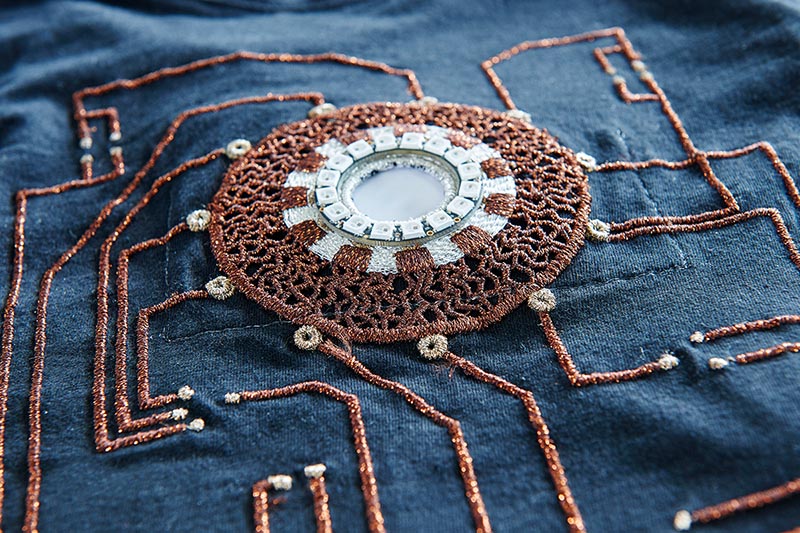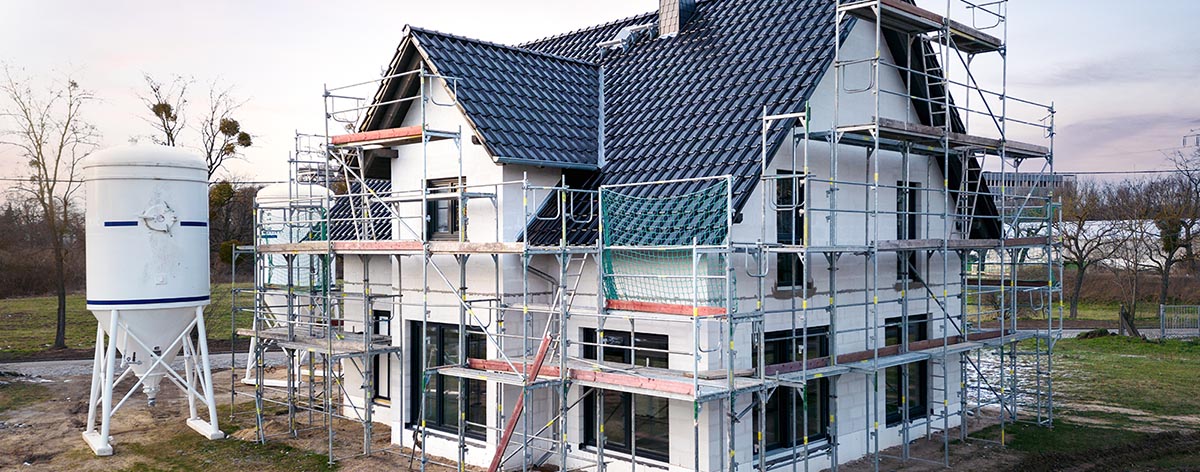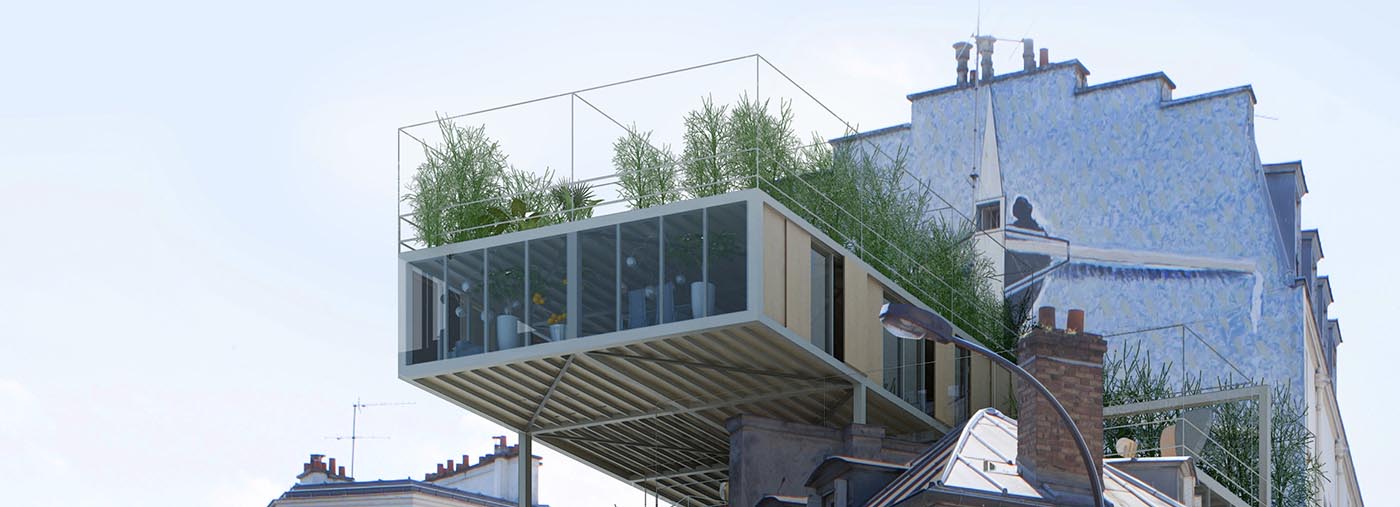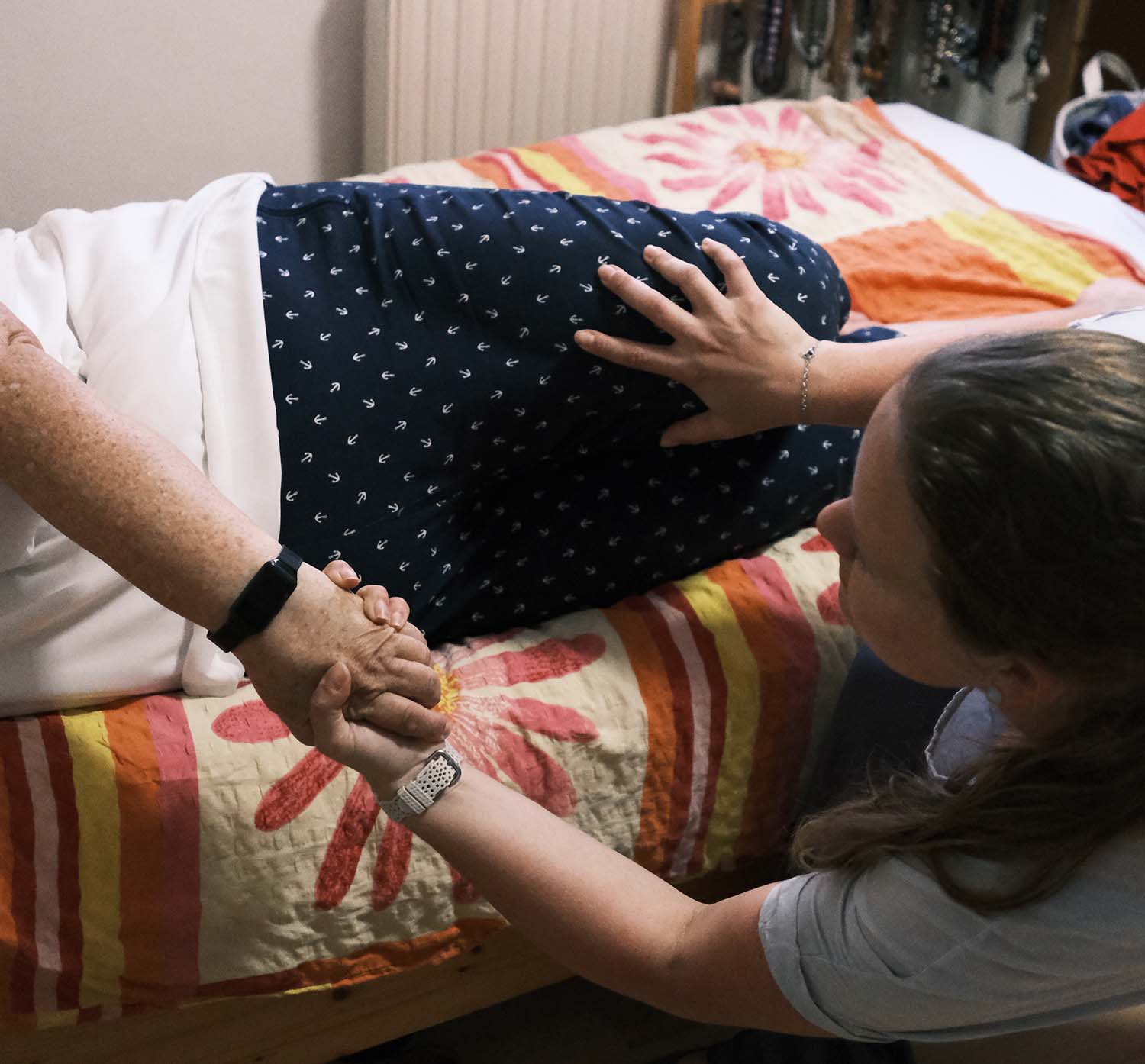"Textile lightweight solutions are the future"
Austrian company Texible from Vorarlberg is a pioneer in Smart Textiles Engineering. Textile know-how is used for a wide variety of solutions – including lightweight building constructions.
When we think of textiles, we usually think of clothing – but when processed into smart textiles, basic textile materials can do much more. Smart textiles combine textile and electronic properties and are used, for example, in the fields of sports, safety, leisure, health and technical applications.
The company was founded in 2016 as a spin-off of the University of Innsbruck to bring research developments in the field of smart textiles to the market. Production and laboratory are located in a former knitwear factory.
“A big part of our work are development contracts. Companies approach us with various concerns and smart textiles offer many possibilities for solutions” explains Kathrin Fröis, responsible for sales at Texible. “Often they are looking for further developments. Companies want to make their products lighter, more tensile or more user-friendly,” she explains.
Stitched copper threads (PhotoCredit: Texible)
Lightweight construction methods provide stability, but require fewer resources - as seen here with textile concrete reinforcement made of carbon (Photo credit: Texible)
Textile know-how applied across disciplines: Conventional sewing for prototype development in the workshop (Photo credits: Texible)
Employee soldering contact points (photo credit: Texible)
Textile solutions in construction
In the future, textiles will also play a major role in lightweight building construction solutions: Lightweight construction methods provide stability, but require fewer resources. Particularly in times when energy- and resource-saving constructions are requested, these solutions will become increasingly important.
With this movement in mind, Texible has developed a solution of embroidered textile currencies, and launched its own brand contex/Mesh. Where heavy steel reinforcements are normally used, Texible knits these reinforcements with glass and carbon fibers. “This creates a grid that in our tests has enormous tensile strength, even higher than conventional concrete processes,” says Fröis, “We mainly see this application in bridge renovation. It means huge cost and material savings while maintaining very high tensile and compressive strength.”
Smart textiles are the future
The textile industry in Europe is increasingly focusing on the development and production of technical textiles. Conventional textile technicians must increasingly supplement their existing know-how in an interdisciplinary way in order to be successful in this niche market.
Textile know-how is in demand, says Fröis: “In the training of textile technicians of the future, conventional textile knowledge must be expanded with interdisciplinary skills, such as basic electrical engineering knowledge.”
The potential of smart textiles is diverse. With Austrian partners, Texible developed, for example, an intelligent shoe insole that can measure pressure distributions. This enables a smart analysis of walking and the whole walking apparatus. Customers from the sports sector, from equestrian sports to tennis, also value the Vorarlberg textile experts.
“Our customers often struggle with the fact that their solution does not work properly or, for example, the material is not the optimum one. In our laboratory, our experts work out alternative solutions: Which textile can be used, which sensor is the right one, which coating is necessary, which mixture? In the meantime, our great strength lies in product development, because we have already tried out so many different solutions. That makes us unique, because we already know a great many possible applications,” Fröis is proud of their work. We offer a complete service, starting with the concept and the development of a prototype, to the final product ready for series production.
Made in Europe
Local production is very important to Texible, explains Fröis: “We are passionate Europeans and want to strengthen Europe as a business location. We make sure to keep the value chain in Europe. This is a priority for us in our private lives too.”
One thing above it all is clear to Kathrin Fröis: “We want to create products with an added value and which work in practice. Our heart and soul goes into these projects. We want to deliver quality; that’s the only way we’ll be successful in the long term.”
More information about Texible under: https://www.texible.at
Author: Anja Herberth
Chefredakteurin










